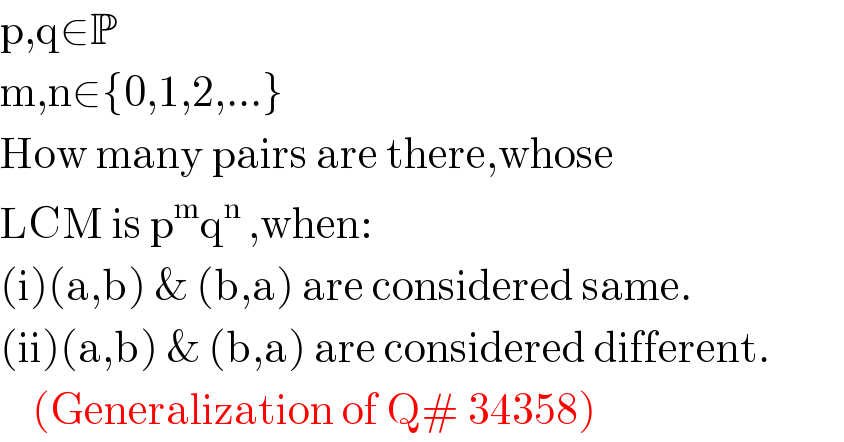Question Number 34385 by Rasheed.Sindhi last updated on 05/May/18

$$\mathrm{p},\mathrm{q}\in\mathbb{P} \\ $$$$\mathrm{m},\mathrm{n}\in\left\{\mathrm{0},\mathrm{1},\mathrm{2},…\right\} \\ $$$$\mathrm{How}\:\mathrm{many}\:\mathrm{pairs}\:\mathrm{are}\:\mathrm{there},\mathrm{whose} \\ $$$$\mathrm{LCM}\:\mathrm{is}\:\mathrm{p}^{\mathrm{m}} \mathrm{q}^{\mathrm{n}\:} ,\mathrm{when}: \\ $$$$\left(\mathrm{i}\right)\left(\mathrm{a},\mathrm{b}\right)\:\&\:\left(\mathrm{b},\mathrm{a}\right)\:\mathrm{are}\:\mathrm{considered}\:\mathrm{same}. \\ $$$$\left(\mathrm{ii}\right)\left(\mathrm{a},\mathrm{b}\right)\:\&\:\left(\mathrm{b},\mathrm{a}\right)\:\mathrm{are}\:\mathrm{considered}\:\mathrm{different}. \\ $$$$\:\:\:\:\left(\mathrm{Generalization}\:\mathrm{of}\:\mathrm{Q}#\:\mathrm{34358}\right) \\ $$
